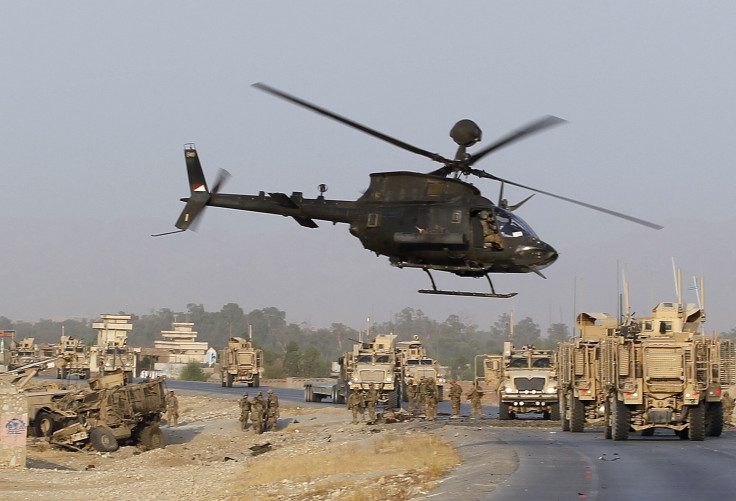NATO Defense Spending Cutbacks May Hurt Afghanistan As Air Support Dwindles

Afghan forces assumed control of Helmand province this week, taking one step further toward complete control of the country when the U.S.-led coalition, ISAF, withdraws at the end of this year. But they will have a hard time controlling Afghanistan without Western air support, and that is precisely what they may have trouble getting, despite promises that they will.
NATO has said it will offer air support until the Afghan Air Force is ready in late 2016, but it remains to be seen how much backing the Afghans will be able to rely on from an increasingly stretched and cost-cutting NATO force.
“I think this is one of the most important questions in Afghanistan right now,” said Malcolm Chalmers, special adviser to the U.K. Parliament on national security strategy and director of U.K. Defence Policy at the London-based Royal United Service Institute. “The volume of assets that the Americans will have in Afghanistan will be much reduced than what it was in the past. Therefore, the Afghan national army will not be able to call for close air support to the extent they have done in the past.”
This comes as British and U.S. forces leave behind Helmand province, one of the most rugged areas in Afghanistan and the theater of battles that have claimed the lives of 350 U.S. and 407 British troops.
Remaining U.S. troops in Afghanistan are around 24,000 which will be reduced to 9,800 by the beginning of next January, before reducing further in 2016.
“There is now clear evidence that the Taliban are amassing their forces to an extent they weren’t able to do in the past,” said Chalmers. “Coming into next spring and summer that’s going to be a big challenge because American coalition air power will not be available to the extent it was.”
While some may have seen the dangerous Helmand province as a risky region to vacate first, it will act as a barometer for Afghan forces to gauge the task at hand and what sort of support, air or otherwise, they will need to combat a resurgent Taliban.
“NATO and the U.S. need to come to an agreement to continue to provide air support for as long as the Afghan forces need it,” said Lisa Curtis, a senior research fellow and expert on Afghanistan at the Heritage Foundation, a Washington-based, conservative-leaning think tank. “This is really critical because it’s the one thing that the Afghan security forces have over the Taliban, which does not have air defense capabilities.”
But those NATO air forces are scaling back expenses, and the U.S. military is also cutting its own spending, diminishing a force that fellow NATO members have relied on for years. According to a study by the Stockholm International Peace Research Institute, the U.S. itself has cut defense spending from a peak of 4.6 percent of GDP in 2009 to a projected 2.9 percent in 2017.
The other 27 NATO members have been asked by President Barack Obama to try and spend at least 2 percent of GDP. However, this is a tough proposition in European countries where high military spending is unpopular. Only Estonia, Portugal, France, Turkey, the U.K. and Greece are spending the requisite amount. But the U.K., for example, looks as if it might slip below that figure within two years if current cutbacks continue.
How this will affect air support in Afghanistan is not yet known.
“The focus for NATO and U.S. forces during [Operation] Resolute Support will be to train, advise, and assist ANSF [the Afghan armed forces] as agreed upon in the NATO Status of Forces Agreement and U.S. Security Defense and Cooperation Agreement,” ISAF spokesman Lt. Col. Chris Belcher told Stars and Stripes in a Monday report. “The exact levels of aviation support beyond train, advise and assist are still under discussion.”
Little is known about those discussion at this stage. But what is certain is that the military threat posed by the Taliban is strong enough to force the U.S. and UK forces to subject a media blackout upon the pullout from their adjoining base, Camp Bastion and Camp Leatherneck. The fear, according to U.S. officials, was that the Taliban would mount a surprise attack.
© Copyright IBTimes 2024. All rights reserved.






















